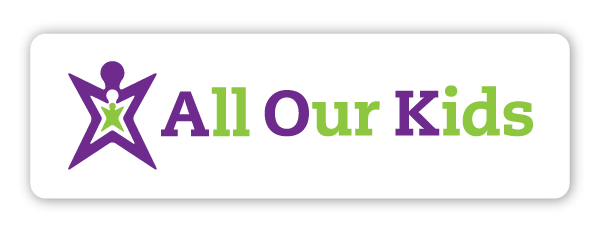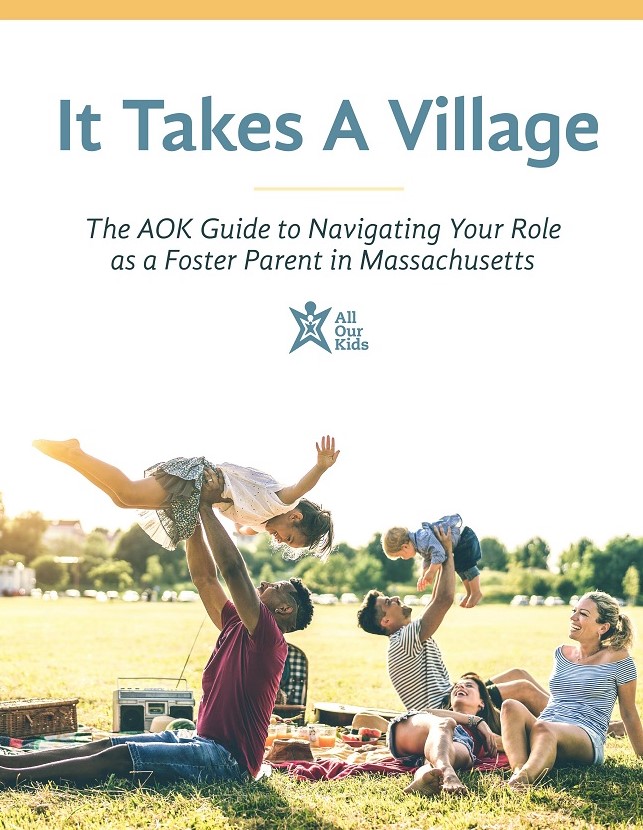Census, Taxes, and Birth Certificates
Adapted from the AOK Guidebook, It Takes a Village.
Census, taxes, and birth certificates? Oh my!
There are some nitty gritty logistics to deal with as foster and adoptive parents that can be a little confusing. What we’re most often asked about is: birth certificates, social security cards, census, and taxes.
Here’s what you need to know:
Birth Certificates and Social Security Numbers
During the time a child is in foster care, you won’t be able to access birth certificates or social security numbers (or passports, for that matter) unless you go through the child’s social worker. If you need a social security number to file taxes or a birth certificate to enroll a child in school, for example, you’ll want to ask the social worker as soon as possible and give him or her ample time to get you the documentation. As a foster parent, you are not able to go to the social security office and get a social security card for a child in your care. Especially if you have a newborn, these documents can take time to generate, and the social worker is the only one who can put those wheels in motion. Be sure to follow up on your request regulalry, and it’s a good idea to let the worker know why you need it and when you need it by. Many of us work best with deadlines!
After a child is adopted, a new birth certificate will be issued, listing adoptive parents and any relevant name change (as of 2009, adoptees in Massachusetts also have access to their original birth certificates, which were previously impounded and not made available). You will not automatically receive the adopted child’s birth certificate, however, and will need to request it. At least three months post-adoption, you can request it from the city/town in which the adoption occurred, the city/town where the child was born, or your city/town of residence (depending on what city/town we’re talking about). You might also be able to request it online.
If an adoption has triggered a name change (which is typically the case), you should report this change to the Social Security Administration by visiting a local SSA office in person. You will need the child’s adoption certificate, birth certificate, and current social security number. Rarely, you are also be asked for addition documentation. Whether you’re able to change the child’s social security number is inconsistent. We have seen adoptive parents change their child’s social security numbers without question, and other times they have been told by SSA that the number is unable to be changed (only reissued in the adoptive name). If there is some security risk you believe your child will have if the number is not changed, you can plead your case to SSA and advocate that they change it.
Census Forms
Yes, you should count your foster children on your census. No, they will not be counted by the social worker or area office.
Taxes
Before we provide information about taxes, we need to acknowledge two things. First, tax law is constantly changing and the rules that govern taxes today might not be the same that will govern taxes next year. Second, we encourage you to consult with a professional tax preparer or accountant for questions and information that are unique to your situation. That said, here are some facts about foster care and taxes:
- Foster care subsidies you receive to support foster children are not taxable and do not get reported on your taxes.
- Foster children count as dependents on your taxes, as long as they’ve been in your home at least six months and one day (it is not the case that whoever has had the child longest in a calendar year has the right to claim them on taxes). The exception to this is the “hospital rule.” If you have a newborn who came to you discharged from the hospital after birth (even if it’s several weeks after birth), they count as a dependent if they remained with you, with no interruption, through the end of the calendar year. This is the case even if they were discharged from the hospital on December 31. In some cases, a child will not be able to be declared as a dependent on anyone’s taxes. For example, if a child was born in May, went home with their birth parents, and was then placed with a foster family in August, where they remained through the end of the year. In that case, no one has had the child for at least six months and one day, and there is no “hospital rule” to use.
- In the event that your tax return is denied because someone else already claimed your foster child on their taxes (typically a birth parent), you will need to submit the tax return by mail and provide additional documentation about the placement. If the IRS finds that someone else included a dependent fraudulently, he or she will be responsible for resultant financial penalties.
- The Adoption Tax Credit is a valuable credit, currently worth over $13,000 available to families who adopt a child. Although families have to document out of pocket expenses to get the credit when they adopt privately, this is not the case for special needs adoptions. All children who receive some post-adoption subsidy (whether it is only health insurance or health insurance and a financial stipend) are considered “special needs” for tax purposes. This means that families of all children adopted through foster care – as long as they are eligible to maintain their MassHealth coverage post-adoption – are eligible to receive the entirety of the adoption tax credit without documenting any adoption expenses. The amount a family is able to claim in any given tax year will depend on their income and the amount of tax liability they may have, as well as other tax credits available to them.
- You must use the name the Social Security Administration (SSA) has on file for your child, or the tax return will not be accepted. This means that until the SSA has a record of your adopted child’s new name, you will need to use your child’s birth name.
- Many tax preparers are not familiar with foster care issues or adoption tax credits for foster care adoptions, and we encourage you to seek out a professional with expertise in this area to advise you, as needed.
Want to learn more about navigating your role as a foster parent in Massachusetts?
It Takes a Village is the first and only comprehensive guidebook available. Order your copy today!

